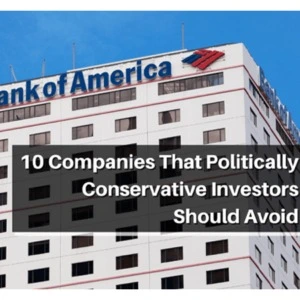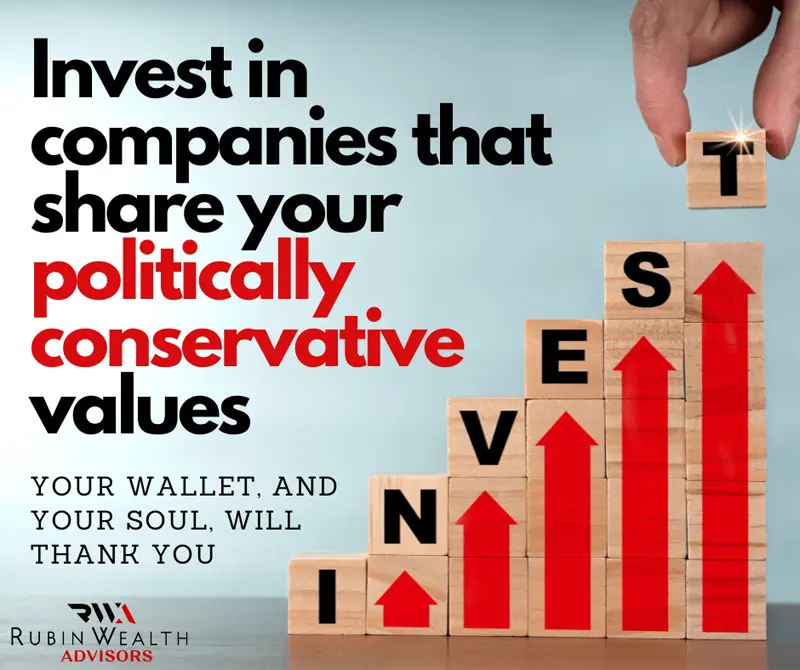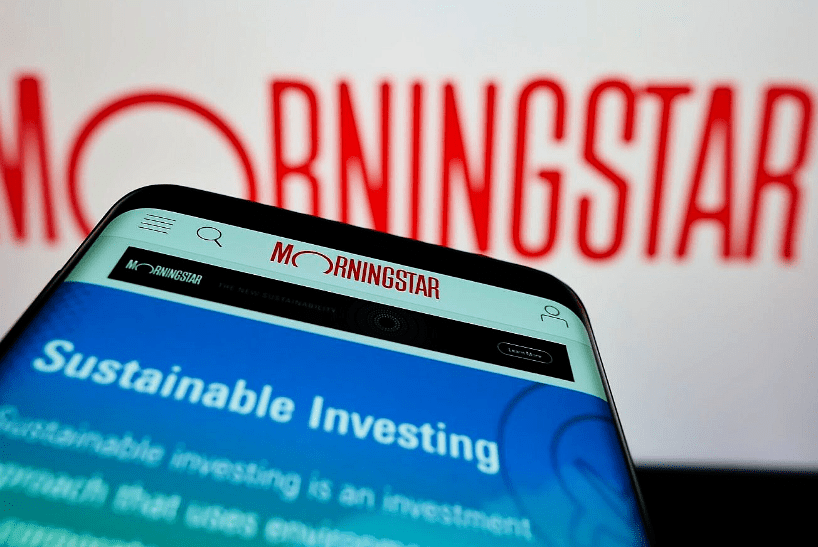Ten Reasons Why ESG is Bad News for Investors.
/in Uncategorized /by Bob RubinSlowly, but steadily, more and more Americans are becoming familiar with the term ESG (Environmental, Social, and Governance). This three-letter acronym is designed to veil a collectivist/fascist corporate approach to business that has been taking hold in publicly traded companies, mutual fund companies and rating agencies over the past decade. It stifles individual liberty, free market capitalism, and returns on investment.
Simply explained by its supporters, ESG is represented as being:
…a set of standards for a company’s behavior used by socially conscious investors to screen potential investments.
Environmental criteria consider how a company safeguards the environment, including corporate policies addressing climate change, for example. Social criteria examine how it manages relationships with employees, suppliers, customers, and the communities where it operates. Governance deals with a company’s leadership, executive pay, audits, internal controls, and shareholder rights.
One of the problems that conservatives have is their tendency to surrender language. That habit has played right into the hands of the little dictators from Blackrock and Vanguard who have been able to shove this collectivist approach to organizing economic activity right down America’s throat. After all, how can you argue against companies “setting standards” to be “socially conscious,” and using “social criteria” in deciding how they “manage relationships?” These things sound good to most people for one simple reason: They sound good!
The truth, however, is that this near-Orwellian doublespeak used by ESG advocates is nothing more than lipstick for the pig we all know as socialism (centralized planning, management, and oversight of political, social, and economic activity). For those inclined to think critically, here are ten good reasons why ESG policies are not at all what the flowery language of WEF-types suggest:
- ESG deflects attention away from maximizing shareholder value:
When a company starts to make decisions based upon social engineering principles instead of principles relating to maximizing return on investment, they will by definition sacrifice the latter in service to the former.
- If you want companies to move away from maximizing shareholder value, do you really believe that they will? The ESG paradox:
Since companies maximizing shareholder value has been the focus of free market capitalism since it was first truly unleashed during the Industrial Revolution in Great Britain during the 18th century, do you really believe that when they say they are supporting ESG agendas they are stepping away from that traditional role? Herein lies a bit a of a paradox for investors to consider. If you really believe in ESG then you might want to take a lesser return on your investment in pursuit of serving the “general will.” But then you are left with the problem of trusting the company to really support your shared collectivist vision. What if they cheat?
- ESG-reported compliance efforts can be used as an excuse for a company underperforming:

When does a bad company become a good company? The answer is when they can claim that their “badness” is simply a result of implementing ESG policies to serve the greater good. Management isn’t incompetent. Goods and services aren’t failing to offer customers what they want. Investment decisions weren’t badly made. The climate (like the Devil) made me do it!” What better corporate trick of the light can a C-suite have available than to tell shareholders that they aren’t making money but that they should feel really good about it?
- Over time, investment funds comprised of ESG companies tend to underperform:
Writing for the Harvard Business Review back in March of this year, Sanjai Bhagat points out that ESG funds tend to lag in performance when compared to the market overall. Citing research from the University of Chicago using data from Morningstar, Bhagat writes that those researchers…
… analyzed the Morningstar sustainability ratings of more than 20,000 mutual funds representing over $8 trillion of investor savings. Although the highest-rated funds in terms of sustainability certainly attracted more capital than the lowest-rated funds, none of the high-sustainability funds outperformed any of the lowest-rated funds. Read that again – none of the high ESG funds outperformed the lowest rated, ie. less ESG funds. None!
When combined with the first three problems noted above, it is easy to draw the conclusion that corporate promotion of ESG initiatives creates opportunities for deception, obfuscation, and failure. None of those should be appealing to investors who can find the world of picking and choosing winners in the stock market difficult enough even when just considering traditional business metrics of success.
- Addressing climate change lies at the heart of ESG policies but climate change science is anything but “settled”:
Whether it is the weather, warming, cooling, emissions, footprints, you name it, the idea that the concerns around “climate change” are settled science is a false one. We are told that hurricanes are occurring at a historic rate-not true. We are told that rising temperatures threaten our food supply-not true. We are told that CO2 emissions are per se threatening-not true. We are told that wind and solar can replace conventional energy sources-not true. There are credible scientists and inconvenient facts everywhere you look that refute virtually all claims that relate to climate and energy. These claims are fundamental to ESG corporate strategies. Said simply, ESG is built upon a bad foundation.
- ESG can lead to neglecting necessary safety and maintenance issues:
Pacific Gas & Electric was the poster child for ESG-type policies, even before the term existed. They received top rankings from every environmental rating group you can imagine. The company claimed that over a third of its power came from renewables, which helped deliver a string of best-possible governance ratings from Institutional Shareholder Services (ISS).
That said the company’s track record over the past 20 years has included misleading regulators, felony convictions, and even contributing to the devastating California wildfires of 2017-18. PG&E has been a false flag in terms of its ESG compliance and is the perfect example of how the more self-righteous a C-suite sounds, the less righteous it is likely to act.
- Companies that sign on to ESG-type commitments are some of the worst at meeting those objectives (hypocrisy in action):
In the same Harvard Business Review article cited earlier, Bhagat cites research to suggest that a company saying it will support ESG policies doesn’t necessarily translate into measurable or even positive action:
Researchers at Columbia University and the London School of Economics compared the ESG record of U.S. companies in 147 ESG fund portfolios and that of U.S. companies in 2,428 non-ESG portfolios. They found that the companies in the ESG portfolios had worse compliance records for both labor and environmental rules. They also found that companies added to ESG portfolios did not subsequently improve compliance with labor or environmental regulations.
If you think that ESG is truly important, then making your investment decision based upon a company’s stated objectives could bite you from two sets of teeth; poor returns and poor compliance.
- ESG replaces a focus on innovation with a focus on compliance:
How can a company focus on finding what is “next” in terms of the best product or services when it is focused on eliminating Styrofoam from the breakroom and creating policies for the use of pronouns? The answer is that it can’t, at least to the extent that it would not be it not concerned with the trivial and mundane.
- When you think you are doing something “good” by investing in an ESG company, you are ignoring being serious about addressing long-term problems:
If you truly think that climate change is an issue and that reducing our collective carbon footprint is vital to not forcing man to move to Mars in the next few decades, then do you really believe that the best way to affect change and cause action is how you buy and sell stocks in what can be called an investment aftermarket (remember that the vast majority of stocks being traded in the open market are traded between two entities-the company itself isn’t actually getting any money)?
- Who are these masters of the universe to be telling us what is best about environmental, social, and governance policies anyway?
Any time you hear people say they are trying to do what is “right”, what serves the “greater good”, and what is “ethical and moral” you need to ask yourself (and them) to get specific. What is the “right” thing to do and who defines it? In serving the “greater,” who is included in that category, who is left out, and who is deciding what is good for them? The ethical thing to do? What exact system of ethics are you using or are you just talking about things that please you?
This goes back to our surrender of language. We hear these kinds of terms from corporate titans and just take them at their face value because the words sound good. But you have to ask them and yourself, what do your words mean?
——
In 1970, Milton Friedman penned an essay for The New York Times titled “A Friedman Doctrine: The Social Responsibility of Business is to Increase Its Profits.” He argued that a company has no social responsibility to the public or society; its only commitment is its shareholders. Times have changed…or have they? Given the uncertainty of today’s financial climate and all of the inherent contradictions contained with corporate ESG policies, your best choice is to work with a politically conservative financial planner who shares your values and can help make sure your focus remains on ROI and not ESG.
So, I would ask your broker these questions:
Does your firm support ESG? Why?
Are any of my funds in ESG investments?
Since it’s hard to completely avoid ESG and since ESG negatively affects my rate of return, what are you doing to minimize the amount in my account?
For more questions to ask your broker and how to minimize the amount of ESG in your account contact Bob Rubin from Rubin Wealth Advisors today.

Are you concerned about inflation, ESG compliances, and the 2022 crypto crash?
Your investment portfolio can be affected by any or all of these factors.
Schedule an appointment with Bob Rubin, your dedicated, conservative financial advisor, for a free portfolio analysis today.
Get started by clicking the button below.
Related Articles
No BS… Just straight forward advice
Contact Bob, the Nation’s Predominant
Politically Conservative Financial Advisor Today!









